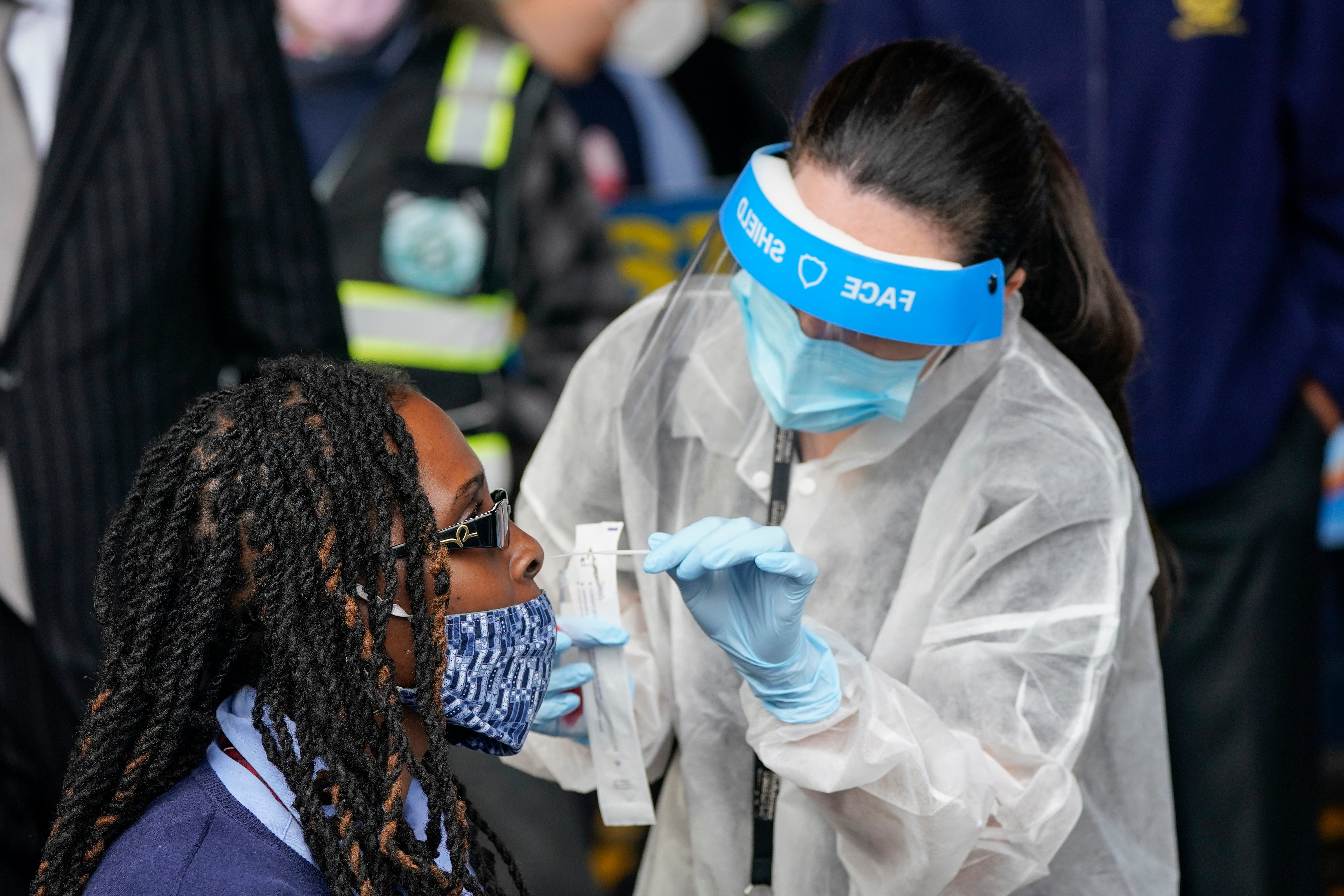New York to increase testing of public transit workers
The Metropolitan Transportation Authority says it's embarking on a first-in-the-nation testing program to guard against a second wave of the new coronavirus among transit workers

Your support helps us to tell the story
From reproductive rights to climate change to Big Tech, The Independent is on the ground when the story is developing. Whether it's investigating the financials of Elon Musk's pro-Trump PAC or producing our latest documentary, 'The A Word', which shines a light on the American women fighting for reproductive rights, we know how important it is to parse out the facts from the messaging.
At such a critical moment in US history, we need reporters on the ground. Your donation allows us to keep sending journalists to speak to both sides of the story.
The Independent is trusted by Americans across the entire political spectrum. And unlike many other quality news outlets, we choose not to lock Americans out of our reporting and analysis with paywalls. We believe quality journalism should be available to everyone, paid for by those who can afford it.
Your support makes all the difference.The Metropolitan Transportation Authority announced Tuesday it is embarking on a first-in-the-nation testing program to test thousands of workers weekly to guard against a second wave of the coronavirus.
MTA Chairman Patrick Foye said the goal will be to test 15% of frontline workers weekly.
That would amount to roughly 6,000 bus and subway workers, Transport Workers Union Local 100 President Tony Utano said in an email. Overall, the nation's largest public transit system has more than 70,000 employees. More than 120 MTA employees have died from COVID-19 this year.
“This is exactly the type of screening program we have been asking for and it’s a huge step forward in terms of protecting TWU Local 100 members from a possible second wave,” Utano said.
The testing will be done at field sites, including bus depots and subway and train yards, and at several medical assessment and operational health centers. Results will be available within 24 to 48 hours.
The number of positive cases among MTA employees has ticked up slightly in recent weeks, MTA chief security officer Patrick Warren said Tuesday, though he added the number of daily cases hasn't risen above the low teens.
Subway ridership is less than one-third of what it was pre-pandemic, with bus ridership slightly better. The MTA, which also serves Connecticut and Long Island, is spending hundreds of millions of dollars on cleaning and disinfecting stations, buses and rail and subway cars, and even took the unprecedented step of shutting down overnight subway service.